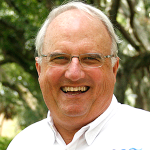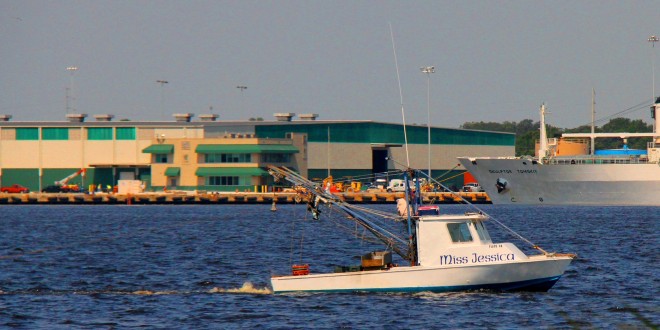
This has been an exciting year for the St. Johns River.
I don’t think there has been a time when more attention has been focused on the river, with more people than ever concerned and engaged in discussions about this tremendous natural resource that flows through Northeast Florida.
The discussion has gone well beyond the concern about dredging, port expansion and water withdrawal. Although these topics are important, the river is essential in so many other ways.
In case you missed it, this is officially the Year of the River sponsored by Cultural Fusion, a collaboration of more than 50 Jacksonville arts and cultural organizations. The hope is that by banding together, the group can raise awareness of the St. Johns River as an important cultural component and economic driver for development, tourism and quality of life. A variety of projects has included exhibits, performances, special programming and events highlighting the river.
The Cummer Museum of Art and Gardens opened an excellent exhibit last month called Reflections: Artful Perspectives on the St. Johns River. It is well worth your time to visit the museum and see this exhibit. My personal favorite is River Table, a perspective of the St. Johns done in blown glass by Jacksonville University art professor Brian Frus.
Earlier this week, as part of the Year of the River, the World Affairs Council of Jacksonville brought award-winning journalist James G. Workman, author of “Heart of Dryness: How the Last Bushmen Can Help Us Endure the Coming Age of Permanent Drought,” for a series of programs at JU and the University of North Florida.
Workman is deputy director of the Environmental Defense Fund’s Catch Share Design Center that works with the fishing community to find a process to maintain a healthy fishery, and co-founder of SmartMarket, a start-up venture based on principles learned from the Bushmen, to create solutions to our shrinking water supply.
I was honored to be asked to participate in some of the programs. As a lifelong learner, this was an opportunity to interact with someone who has been a foreign correspondent, worked to blow up dams, released wolves and is now an emerging leader in the effort to conserve fresh water and marine fisheries.
Fresh water and marine fisheries are not two things we usually associate together. Yet they are intimately linked, beyond the obvious connection of fish living in water. Both are free to anyone who wants to gather and collect them. You don’t pay for water or for fish. You can sink a well and essentially pump all the water you want and not pay anyone a cent for it.
Likewise, you can go to the river or ocean and catch fish to your heart’s content and not pay anyone for the fish.
Still, both have value.
You pay your water bill for the delivery service of that water to your tap. In a similar fashion, when you buy fish, you are paying for the cleaning and delivery of that fish to your table.
Perhaps the stronger link is that both water and fish are in danger of overuse. We are running out of clean, plentiful and cheap water, just as we are overfishing some species of fish.
Water and fish both have individual users and commercial users, with typical tension between these two groups over who is getting their fair share. The good news is that there are now innovative ways to solve these problems, but they will take all of us working together to do it.
ASK RIVER LIFE
Are there any artificial reefs in the St. Johns River?
The city of Jacksonville and the Coastal Conservation Association partnered to build two river reefs that were installed in December of last year. The concrete rubble reefs will be studied by the JU Marine Science Research Institute for the next three years to assess how successful they are in providing a fishing resource to area anglers. It is too early to tell, but we are optimistic that they will have a positive impact on fishing in the river.
River Life runs the last Friday of each month in The Florida Times-Union. E-mail A. Quinton White, executive director of Jacksonville University’s Marine Science Research Institute, with questions about our waterways at qwhite@ju.edu. For more on the MSRI, visit ju.edu/msri.
 Wave Magazine Online Jacksonville University News Hub
Wave Magazine Online Jacksonville University News Hub
